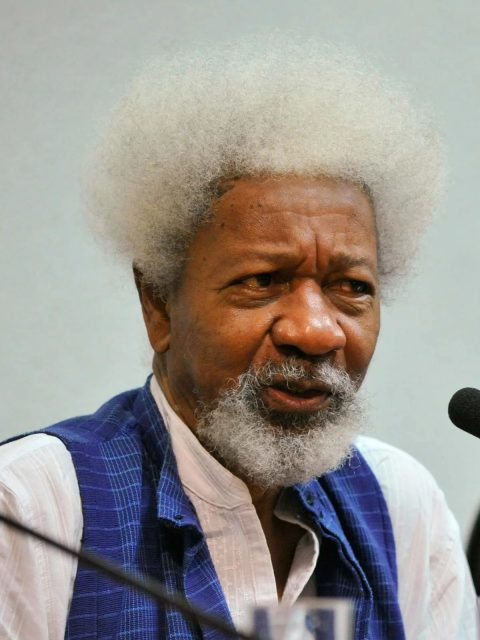Government Keypoints: Public Commissions Established by the 1979 and Subsequent Constitutions; This study material is suitable for students sitting for the following exams: JAMB, WAEC, NECO, GCE, IJMB, and JUPEB.
Study more government keypoints here
Government Keypoints: Public Commissions Established by the 1979 and Subsequent Constitutions
Public commissions established by the Nigerian constitutions, notably the 1979 and subsequent ones, are critical institutions designed to oversee various aspects of governance, address citizen grievances, manage electoral processes, and handle specific national concerns. These commissions serve as vital components in Nigeria’s administrative and governance framework, aimed at promoting transparency, accountability, and effective service delivery to citizens.
The Civil Service Commission
Objectives:
- Appointment and Promotion: Regulate appointments and promotions within the civil service.
- Maintaining Standards: Ensure adherence to merit-based recruitment and personnel standards.
- Career Development: Facilitate training and career development for civil servants.
- Disciplinary Actions: Oversee disciplinary procedures within the civil service.
- Policy Advisory: Advise the government on civil service matters and policy formulation.
Functions:
- Recruitment: Conducting recruitment exercises based on established criteria.
- Promotions: Administering fair and merit-based promotion processes.
- Training and Development: Organizing training programs to enhance staff skills.
- Disciplinary Actions: Handling disciplinary issues and imposing penalties where necessary.
- Policy Recommendations: Providing recommendations to improve civil service efficiency.
Problems:
- Politically Influenced Appointments: Instances of political interference in civil service appointments.
- Bureaucratic Inefficiencies: Slow processes in recruitment and promotions.
- Underqualified Personnel: Challenges in maintaining high-quality standards in the civil service.
- Corruption and Nepotism: Cases of corruption and favoritism in personnel matters.
- Inadequate Training: Insufficient training opportunities affecting staff development.
The Public Complaints Commission
Objectives:
- Grievance Redressal: Address complaints against government agencies and officials.
- Protection of Rights: Protect citizens’ rights and interests against administrative injustice.
- Transparency and Accountability: Promote transparency in government actions.
- Investigation and Resolution: Investigate complaints and resolve them impartially.
- Educating Citizens: Educate citizens about their rights and duties.
Functions:
- Receiving Complaints: Receiving and documenting complaints from citizens.
- Investigating Complaints: Conducting thorough investigations into complaints.
- Mediation and Resolution: Mediating to resolve disputes between citizens and government bodies.
- Public Awareness: Creating awareness about citizens’ rights and duties.
- Recommendations: Making recommendations to address systemic issues based on complaints.
Problems:
- Resource Constraints: Insufficient resources affecting the commission’s effectiveness.
- Influence of Powerful Entities: Challenges in addressing complaints against influential bodies or individuals.
- Delayed Resolutions: Lengthy processes in resolving complaints affecting public trust.
- Lack of Enforcement Power: Limited authority to enforce recommendations.
- Awareness Gap: Limited public awareness of the commission’s role and functions.
Electoral Commissions
Objectives:
- Free and Fair Elections: Conduct credible and transparent electoral processes.
- Voter Education: Educate citizens about the electoral process and voting rights.
- Electoral Integrity: Ensure integrity in voter registration and election conduct.
- Political Neutrality: Maintain neutrality in overseeing electoral activities.
- Conflict Resolution: Mitigate electoral disputes and conflicts.
Functions:
- Voter Registration: Overseeing voter registration processes.
- Conducting Elections: Organizing and supervising elections at various levels.
- Educating Voters: Providing voter education programs and materials.
- Result Collation: Collating and announcing election results.
- Dispute Resolution: Addressing election-related disputes through legal processes.
Problems:
- Political Interference: Political parties’ interference affecting electoral integrity.
- Logistical Challenges: Insufficient resources leading to logistical issues during elections.
- Voter Irregularities: Issues with voter registration and identification processes.
- Electoral Violence: Incidents of violence disrupting the electoral process.
- Legal Bottlenecks: Lengthy legal processes delaying dispute resolution.
National Boundary Commission
Objectives:
- Boundary Demarcation: Demarcating national boundaries and resolving boundary disputes.
- Territorial Integrity: Protecting Nigeria’s territorial integrity.
- International Relations: Managing boundary issues concerning neighboring countries.
- Resource Management: Facilitating resource allocation in border regions.
- Conflict Prevention: Preventing conflicts arising from boundary disputes.
Functions:
- Boundary Survey: Conducting surveys to demarcate national boundaries accurately.
- Negotiation: Engaging in diplomatic negotiations with neighboring countries regarding borders.
- Conflict Resolution: Resolving boundary disputes through mediation or legal means.
- Documentation: Maintaining accurate records and documents related to boundaries.
- Policy Advice: Providing advice to the government on boundary-related matters.
Problems:
- Unresolved Disputes: Long-standing boundary disputes affecting peace and development.
- Resource Limitations: Inadequate resources for comprehensive boundary surveys and resolutions.
- Political Sensitivities: Politicization of boundary issues hindering resolution efforts.
- Neighboring Countries’ Cooperation: Challenges in securing cooperation from neighboring countries.
- Security Implications: Boundary disputes leading to security threats in border regions.
Evaluation of Operations of Public Commissions
Public commissions have contributed to governance by addressing grievances, overseeing key areas, and enhancing citizens’ participation. However, challenges such as political interference, resource constraints, bureaucratic inefficiencies, and limited enforcement power have hampered their effectiveness.
Assessment of Problems and Constraints
Persistent problems faced by these commissions include resource limitations, political interference, slow processes, and inadequate public awareness. Constraints such as insufficient legal authority and delays in resolving issues hinder their ability to perform optimally.
Conclusion
Public commissions established under Nigeria’s constitutions serve vital roles in governance, yet they grapple with multifaceted challenges that impede their effectiveness. Addressing these issues, including resource allocation, legal empowerment, and public awareness, is crucial for enhancing their capacity to serve citizens and fulfill their mandates effectively.








